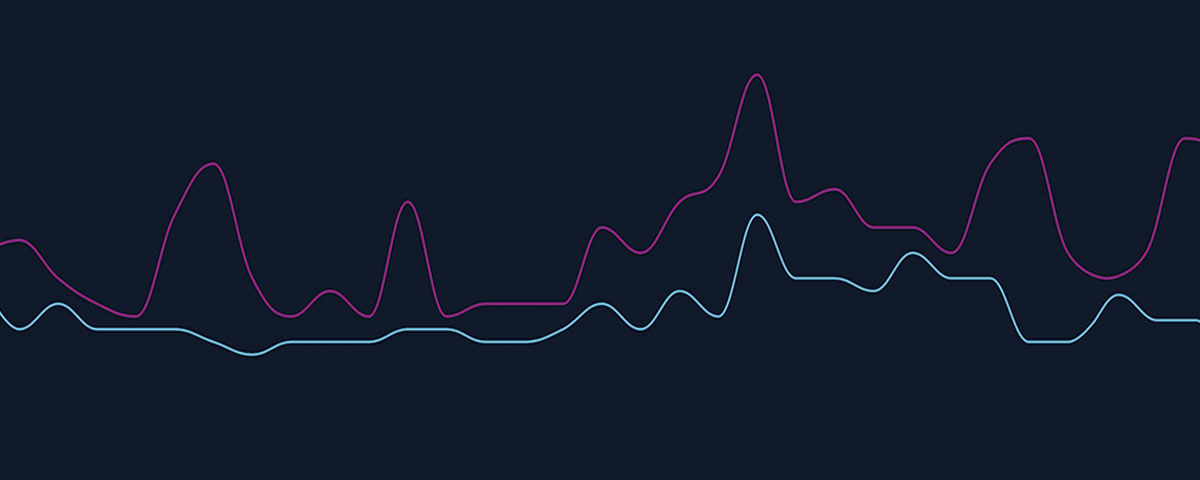
Signals Indicate Kim on Sure Footing in Singapore
On the eve of the Trump-Kim Summit, Predata signals capturing patterns of web traffic reveal a North Korean regime secure in its place and an expert community skeptical that the historic meeting will produce meaningful results.
The first of these signals captures activity on Korean-language web pages related to past cases of regime collapse, such as the fall of Muammar Gaddafi, the breakup of the Soviet Union, and the U.S. invasion of Iraq. Interest in these pages can be taken as a proxy for concern among Koreans that the North could fail, due either to outside invasion or domestic implosion.
As the chart below shows, November 2017 was a particularly harrowing month for the peninsula. The signal, which gives an aggregate of traffic on those Korean-language web pages related to past regime collapse cases, hit its highest level in a year on November 4, the day Trump flew to Asia for his first visit to the region as President. Before departing, he said the purpose of the trip was to “solve” the North Korea problem and again floated the possibility of a preemptive strike. The signal spiked again just days before Pyongyang launched an ICBM capable of hitting the continental United States.
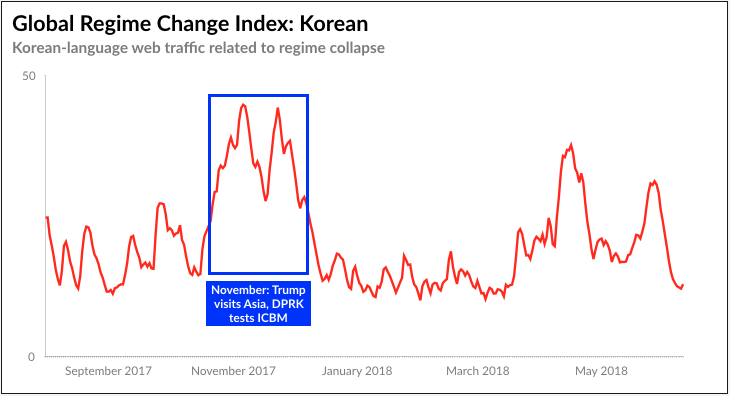
In addition, there was an all-time high in attention to Korean-language web pages related to the Libyan civil war — during which Muammar Gaddafi, after having ceded his country’s nuclear weapons years ago, was deposed and murdered by rebels.
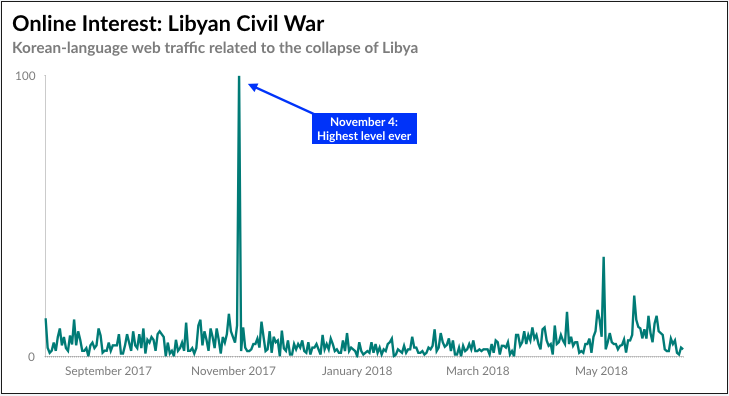
Note, the aggregate signal also spiked before Kim’s meeting with Moon and a few weeks ago, when Trump abruptly called off the Singapore Summit. Both of those windows marked uncertainty for the regime.
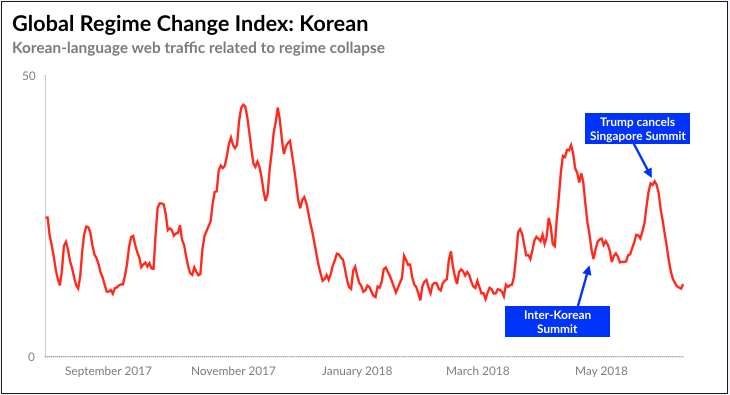
After the summit was turned back on, the signal has fallen dramatically. Korean internet users apparently do not see the summit as a threat to regime security.
Though the Hermit Kingdom is the darkest information environment on Earth, a privileged few have unfettered access to the web. A 2017 study by threat intelligence firm Recorded Future found that North Korea’s leaders and ruling elite use the internet as users in other countries do — to visit social media sites, read international news, and browse Google search results.
Given the salience of the subject of regime collapse to that North Korean upper crust, it is highly plausible that upticks in interest are at least in part originating from Pyongyang. And even if the signals are reflecting South Korean interest, that too is a meaningful representation of apprehension. The violent implosion of the Kim Jong-un regime would unleash a panoply of ills for Seoul — a refugee crisis, a potential great power proxy war, and the possibility of loose nuclear weapons.
Separately, other signals suggest that among informed observers, expectations are low that the summit will produce meaningful results. The Predata signals below reflect the relative volume of the hawkish and dovish Korea experts on social media. As the more dovish observers have gone quiet, the hawks have become much more vocal — a sign that skepticism is gaining more traction in the online debate.
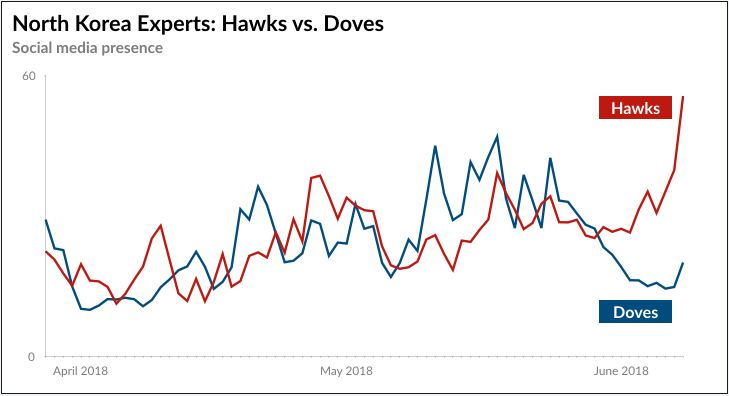
It is impossible to anticipate what will happen when two of the world’s most unpredictable leaders meet face-to-face after only weeks of preparation. But taken together, these signals suggest a context that bodes well for the North Korean regime. A summit that produces a photo op with the U.S. President, recognition on the international stage, and no substantive steps toward denuclearization would be a clear win for Kim Jong-un.
